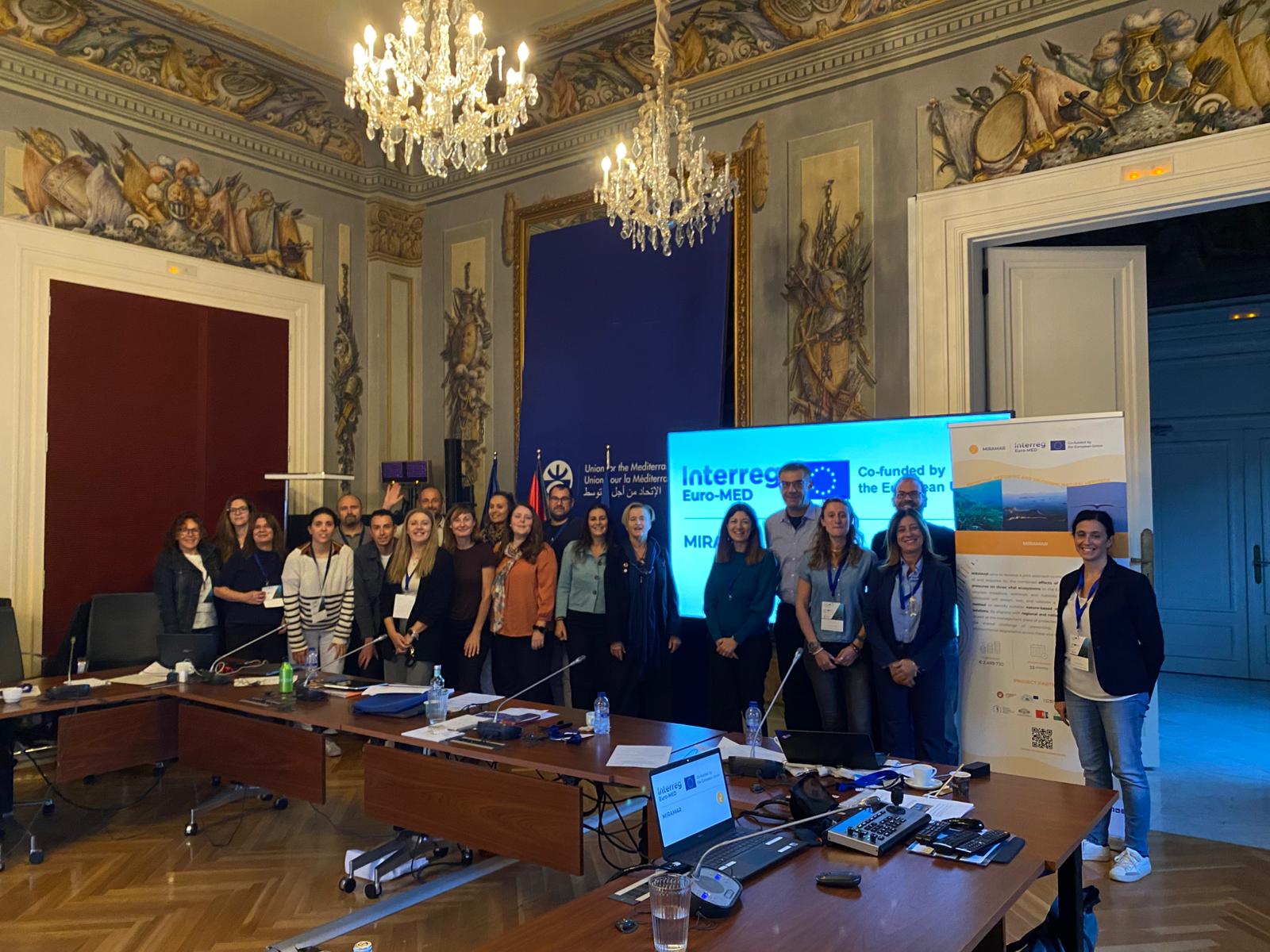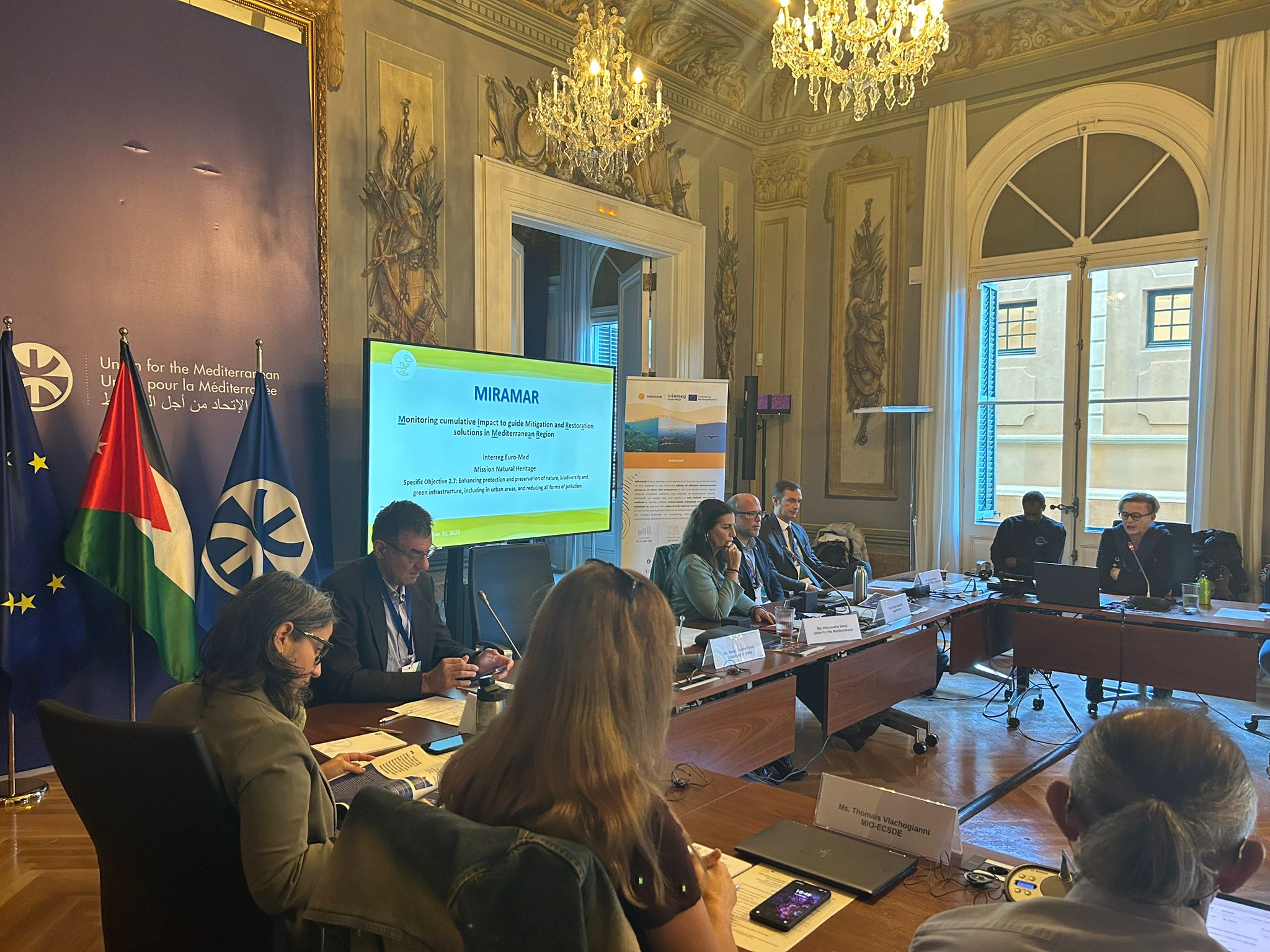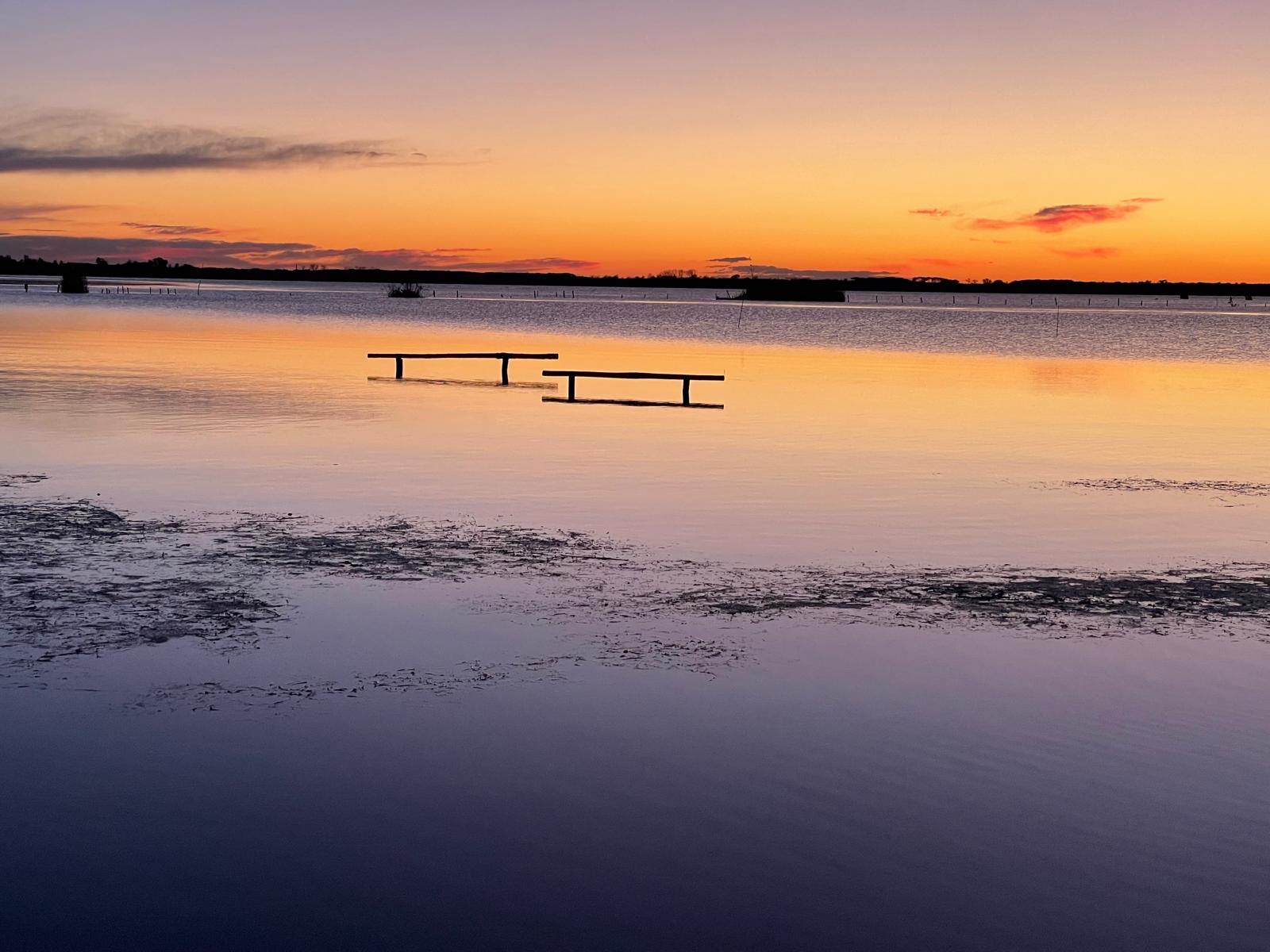The Plastic Busters initiative is taking another significant step forward with the launch of two new projects funded by the Interreg Next Med and Interreg Euro-MED programmes: MedPROACT and MIRAMAR. This initiative has linked past with future by addressing plastic pollution with multiple stressors, including climate change and emerging contaminants in the Mediterranean Sea.
sustainable and resilient Mediterranean Sea
Hosted at the Union for the Mediterranean (UfM) headquarters in Barcelona, this milestone event has gathered representatives from across the region – including countries, research institutions, civil society organizations, regional partners, other Interreg programmes, and key Mediterranean stakeholders – to reinforce cooperation towards a sustainable and resilient Mediterranean Sea.
Labelled by the UfM in 2016, the Plastic Busters initiative embodies a joint commitment between the EU, Mediterranean countries, and the UfM Secretariat to tackle marine litter and safeguard marine biodiversity. Building on the achievements of previous Interreg-funded projects such as Plastic Busters MPAs, Plastic Busters CAP, and COMMON, the initiative is now expanding its scope to address broader environmental stressors threatening the Mediterranean basin.
As the region’s unique biodiversity continues to face mounting pressures, the new phase recognizes that marine ecosystems are heavily exposed to emerging contaminants, marine litter including microplastics, underwater noise, and habitat fragmentation and destruction resulting from ever-increasing human activities. These stressors, compounded by climate change, are causing long-term impacts on ecosystem stability and the well-being of coastal communities.

Mediterranean in balance
The new projects will focus on enhancing scientific knowledge and strengthening regional cooperation to respond to these complex challenges and cumulative impacts. In particular, the MIRAMAR project (Leaded by University of Siena) has identified three ecologically significant ecosystems in the Euro-Mediterranean region – seagrass beds, wetlands, and habitats of endangered species – as priority areas for action. These ecosystems play a crucial role in maintaining biodiversity, supporting fisheries, and protecting shorelines from erosion and climate impacts as well as providing with ecosystem services. The project aims to develop an innovative harmonized methodology to monitor cumulative impact of selected stressors in 9 pilot areas across Albania, Croatia, France, Greece, Italy, and Spain and in the three identified habitats. An important outcome of the project will include sshowcases of Good Practices, highlighting successful examples of ecosystem restoration and pollution mitigation. The multidisciplinary team composed by 8 institutional partners will be supported by fourteen associated partners, including protected area managers, local and national authorities, and international environmental bodies ensuring that science is connected to policy and knowledge is turned into action.
MedPROACT (Leaded by LEGAMBIENTE), financed by the Interreg NEXT MED programme, and MIRAMAR, funded by Interreg Euro-MED, aim to enhance the adaptive capacity of Mediterranean coastal communities, promote evidence-based policy dialogue, and strengthen scientific collaboration and data sharing across borders. Together, these projects will reinforce synergies and contribute directly in advancing the shared goal of a cleaner, healthier, and more resilient Mediterranean Sea. MIRAMAR and MedPROACT will continue building on the extensive network of stakeholders created at a Mediterranean region within the Plastic Busters initiative.
Join us to explore how Mediterranean cooperation continues to drive progress toward cleaner seas and stronger, climate-resilient coastal communities.

“MIRAMAR strengthens science to protect the Mediterranean and deliver real responses to the threats facing its biodiversity and communities”


